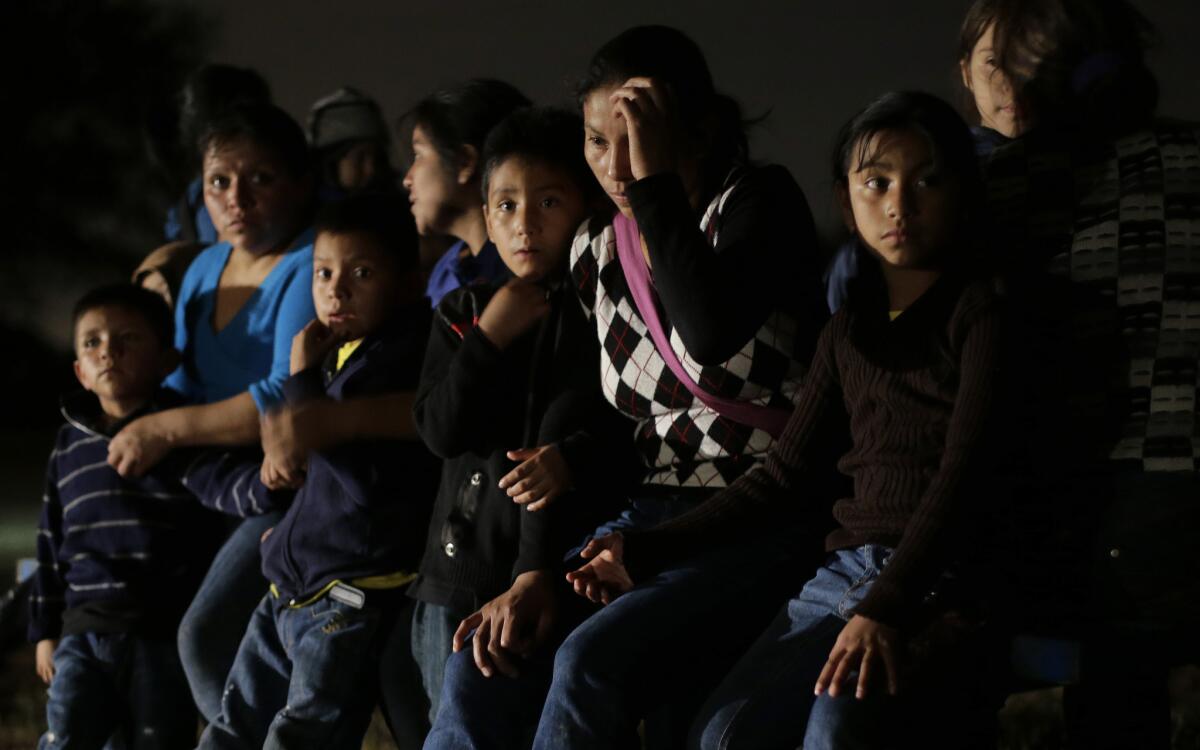Opinion: Is it fair to send kids before immigration judges without a lawyer?

- Share via
In a lawsuit seeking to force the government to supply legal counsel for undocumented minors facing deportation, the American Civil Liberties Union and immigrant rights groups Wednesday filed a class-action lawsuit accusing the federal government of denying the kids due process.
The filing is sure to prompt a hailstorm of condemnations by immigration foes, and the legal argument isn’t a sure thing. The lawsuit compares unaccompanied minors in the immigration system with other minors facing civil juvenile delinquency proceedings, where, the ACLU says, court rulings have established that the kids are entitled to legal representation because of their incapacity to make their own cases. The lawsuit argues that federal law requires a “full and fair hearing” for the undocumented, unaccompanied minors, which is impossible unless the children have legal counsel.
There’s something inherently unfair about forcing children to represent themselves in a legal proceeding presided over by a judge in which the government that is trying to deport them is represented by a lawyer. It’s also a bit much to expect a child to make a cogent, legally sound argument under the nation’s byzantine immigration laws (on a par with the tax code for inconsistency and complexity). Kids with legitimate grounds for seeking asylum or protection should have every opportunity to put forward the best case. The federal government has sought to provide some help with a new justice Americorps program to provide 100 volunteer lawyers for the kids, but those efforts fall far short of the need.
The initial plaintiffs in the case are eight minors ranging in age from 10 to 17, all identified only by initials. Three are siblings, the children of a former gang member in El Salvador who found God, left the gang and became a pastor who opened a shelter for others trying to leave gangs. According to the court filing, he was threatened, then murdered in the street in front of his family. The mother later received death threats, moved the kids in with a grandmother and left the country. Then the kids started getting threats, and three of the four siblings headed north, only to get caught by Border Patrol last July; they now face deportation and have no lawyer to help them make the case that they should stay.
The Obama administration already is seeking to counter the humanitarian crisis at the border by expanding the capacity of the immigration legal system to more quickly process these cases (though Congress, to no one’s surprise, is balking).
For all of its flaws, the American legal system is based on a presumption of equal access. Under the Bush-era William Wilberforce Trafficking Victims Protection Reauthorization Act of 2008, unaccompanied, undocumented minors caught by border agents cannot be removed from the country without going through judicial review. Does it make sense, and is it fair, to require a review but not require legal representation for the person in contention?
Remember, none of these arguments suggests that the unaccompanied, undocumented minors have a right to stay. But they do have a right to due process. Common sense and basic humanity dictate that children should not be forced to stand alone.
Follow Scott Martelle on Twitter @smartelle
More to Read
Sign up for Essential California
The most important California stories and recommendations in your inbox every morning.
You may occasionally receive promotional content from the Los Angeles Times.














